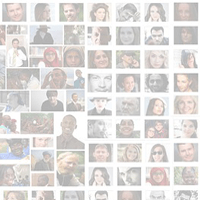The End of Social as You Know It [COMMENTARY]

The days of viral Facebook posts are over. You ruined the opportunity with your click-bait, your over-sharing and hyper-posting. Your business invested its time, energy and financial resources in a channel that cares way more about its own profits than the true engagement of its audience - despite any recent claims otherwise.
It's your own fault really (you should have seen this coming - Website Magazine, in fact, suggested this would happen years ago) and nobody feels bad for you. Don't feel bad for Facebook either as they certainly don't feel bad for you. It's the end of social media as you know it - but I feel fine. Here's why.
For years, businesses have been promised that building up their audience and followers on Facebook's platform would result in direct and immediate benefits. Lured by its billions of "active" users this appeal helped Facebook capture more than one in five U.S. digital ad dollars in 2017 (source eMarketer). Facebook's latest shift, however, has put a firm end to the good 'ol days of social media for brands.
With more publishers out of the way, Facebook now has a much better opportunity to showcase advertising and the more advertising they display, you guessed it, the more money they make. Publishers, desperate for traffic from any source, are now essentially being forced into paying for exposure where once it was free and based purely on the merit of the message. That's ok, that's the way the virtual world works - but you don't have to just sit there and take it.
It goes without saying, but the implications for businesses and brands of Facebook prioritizing friends and family posts over business content are enormous. How will social-minded companies survive on the platform now that Facebook is ignoring/demoting their content? Is there anything you can do? Absolutely.
While there is genuine cause for concern, it's not a time to panic. There are, in fact, two approaches that might serve enterprises well.
In announcing last month's News Feed algorithm change, Facebook representatives explicitly called out the networks' "Groups" feature when discussing the content that could appear more regularly in people's News Feeds. If Facebook is going to prioritize posts from actual people (those actually participating in a Facebook-hosted group), then businesses, and those responsible for their enterprises' success on the social media channel, will need actual people to post about them.
Even before Facebook's recent about-face, studies like TurnTo Networks' 2017 UGC and the Commerce Experience report have shown that content created by consumers has a significant impact on others' purchase intent when evaluating whether to buy a product. It is becoming abundantly clear that those with the most power to influence any given person are the people within their own network. What this means for business owners and brands, despite consumers' diminishing tolerance for ads and sponsored content, is that they only way to reach social audiences is to be engaging and inspiring and to develop experiences that are both dynamic and enticing. Should you go the "groups" route, however, you're still relying on the network - at least in part.
The second approach that publishers could take in light of Facebook restricting organic brand messaging is to move to another platform. Not another social media platform of course, but their own community on their own Web property. In the past, that's the way "social" was done. Forums were the norm in the marketing and promotion world for decades and they worked in terms of driving awareness and performance. Businesses had an opportunity to engage their customers, showcase products, and establish their companies as authorities - and they didn't have to pay for the privilege. And when they maintained their own "social channel" they were able to exert greater control over their most valuable assets - users.
When you turn to a third party to access and manage an audience, you are subject to the changes that network implements - be they good or bad for your business. If you want to control the conversation, and do so for the long term benefit of your enterprise, know that you have options. Facebook, of course, is no longer one of them - and I feel fine (and I hope you will too).

Subscribe to Our Newsletter!
Latest in Social Media







![The End of Social as You Know It [COMMENTARY]](https://www.websitemagazine.com/hubfs/Imported_Blog_Media/gradient-regular-logo-mark-Jan-23-2023-02-14-58-1279-PM-3-1-1.png)


